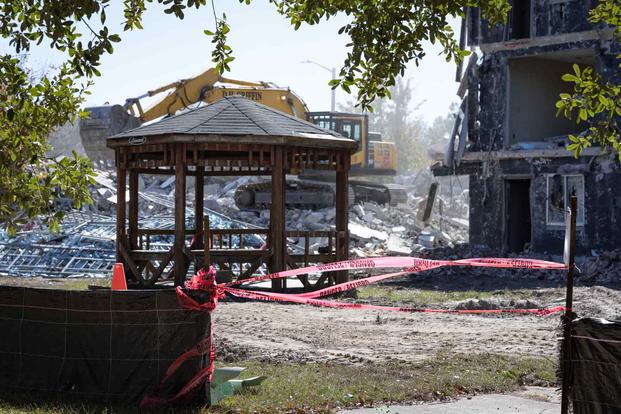The opinions expressed in this op-ed are those of the author and do not necessarily reflect the views of Military.com. If you would like to submit your own commentary, please send your article to opinions@military.com for consideration.
Civilian dorm advisers are being added to Marine Corps barracks. What's next? Fizzies in the base swimming pool? A dead horse in the commandant's office? Is the Marine Corps becoming an "Animal House"?
The recent Military.com exposé on the deplorable conditions in barracks at Camp Pendleton's School of Infantry West is alarming, but the response of senior Marine Corps leaders is disgraceful. Instead of relieving the entire chain of command of the Marine Corps training establishment, the service’s leadership has undertaken a managerial response.
The senior leadership at Camp Pendleton apparently had no idea of the conditions at the School of Infantry barracks until getting ready for an announced visit by the general officer in charge of the Marine Corps training establishment. The local leadership was shocked -- shocked -- to find out that the barracks were riddled with filth, vermin and graffiti, though this had apparently been the case for several years. Instead of holding the chain of command responsible for failures of the most basic leadership functions, the Corps ordered that civilians be brought in to fix problems that should never have occurred in the first place.
Back in the days when the Marine Corps was still the Marine Corps, quality of life was considered a basic leadership responsibility. Every Thursday evening was a field day cleanup and maintenance effort supervised by the noncommissioned officers and staff NCOs, which platoon commanders then inspected. On Friday morning, the company commander would inspect the living spaces. It was not unusual for battalion and regimental commanders or the general officer commanding the installation to make surprise "heath and comfort" inspections of various units. If unreported maintenance or cleanliness problems were found, the proverbial excrement flowed downhill immediately. If a squad's area was found to be unsatisfactory, it was not unusual for a regimental commander to have the entire chain of command standing tall in front of him. The squad leader, platoon commander, company commander and battalion commander would then all take part in a very unpleasant discussion of how "we" had failed.
The modern response to this latest failure has been telling. The senior leadership has promised to throw more money at the problem and bring in civilian housing specialists to fix a situation that was probably years in the making. But this is not the first time the Marine Corps, and the military as a whole, has faced a rough patch tied to discipline.
As a young lieutenant in 1973 to 1976, I experienced a Pentagon and Marine Corps under attack by a post-Watergate Congress and a national leadership adrift. Caused by policies pushed by Defense Department leadership, the Marine Corps and the rest of the services were suffering from a breakdown in discipline aided by the post-Vietnam anti-military mood in the country. The DoD-mandated "New Age" management approaches exacerbated the problem, especially when it came to handling criminal actions.
Miscreants with multiple charges against them could not be put in pre-trial confinement. It was not unusual for a Marine with multiple charges against him to show up at Camp Lejeune, North Carolina, to collect his paycheck and then promptly disappear until the next payday, thus avoiding a desertion charge for which he might be incarcerated pending a court-martial. Congress got its peace dividend by cutting military budgets. Things got so bad that my regiment had to chain toilet paper rolls to the walls to prevent pilferage. Many superb potential future general officers quit the Corps in disgust.
As is the case today, the rot started at the top, but the cloud started to lift when Gen. Louis Wilson -- a Medal of Honor recipient from World War II -- took over as commandant in the middle of the decade. He immediately authorized the Marine Corps to expeditiously discharge the worst disciplinary problems and took other measures to bring the drug problem in the ranks under control. Human relations programs were replaced by leadership classes, and things turned around almost immediately. He swore that he would fix the Corps, and he succeeded.
Today's problems will be harder to reverse.
-- Gary Anderson is a retired Marine Corps colonel who commanded several battalions and was the commander of Camp Hansen, the largest Marine Corps installation on Okinawa, Japan.












